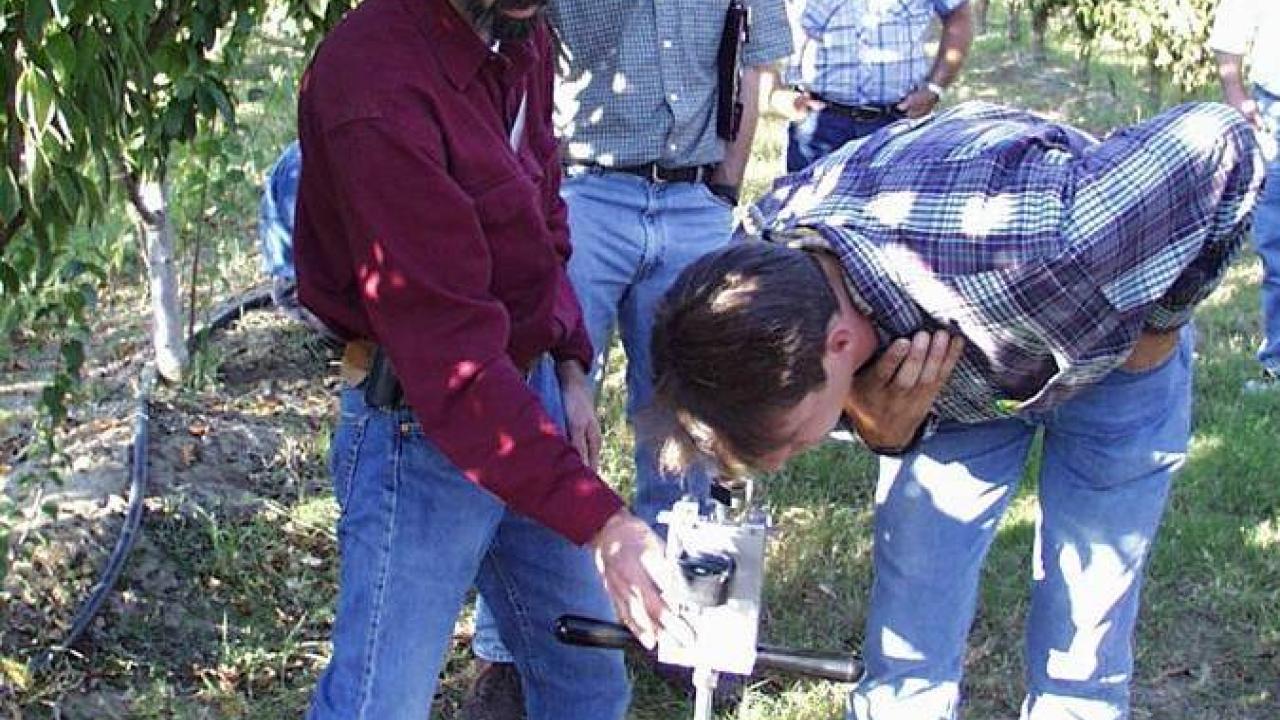
Drought could be the worst in 500 years
Drought will have a multi-year impact on Calif. fruit trees; Ken Schackel, Dept. of Plant Sciences.
February 26, 2014
(from Mother Jones)
California is in the midst of a three-year drought — and scientists believe that this year may end up being the driest in the last half millennium. Californians are scared, with good reason: Fire danger in the state is high, and drinking-water supplies are low.
But the drought will have repercussions outside the state’s borders, as well. California produces a good chunk of the nation’s food: half of all our fruits and vegetables, along with a significant amount of dairy and wine.
Which crops are feeling the burn? Many farmers who grow annual crops — those that have to be replanted every year — have been able to plant fewer seeds than usual in order to conserve water. But those who tend crops that grow on trees and vines are in a tougher position, because their plants have to be maintained year-round.
The good news is that it usually takes more than one very dry season to actually kill a tree — but less water can mean lower production for at least a couple of years. In 2009, Ken Shackel, a tree crop expert at the University of California, Davis, observed several dozen unirrigated almond trees in dry soil for a year. The trees didn’t die, but their yield was cut in half. The next year was even worse: Despite receiving normal water, the trees’ yield was 90 percent below normal. It wasn’t until the year after that their yields were up to normal again.
“However bad this year, it will be worse next,” Shackel says of California’s tree farmers today. “Really bad this year means really, really bad next year.” The most vulnerable crops, says Shackel, are probably stone fruits like plums, cherries, peaches, and apricots, which are adapted to wetter climates.
California’s ranchers are also feeling the drought. Less water means less grass for beef and dairy cows to graze, forcing ranchers either to cull their herds or sell cattle in fire sales. One auctioneer on the Central Coast told the Associated Press he was selling up to 1,000 cattle per week, up to 10 times the normal rate.
(Read the full article, by Alex Park and Julia Lurie, Feb. 10, 2014, Mother Jones, http://www.motherjones.com/environment/2014/02/california-drought-matters-more-just-california)
Media contact:
Professor Ken Shackel, Dept. of Plant Sciences, UC Davis, 530-752-0928, kashackel@ucdavis.edu